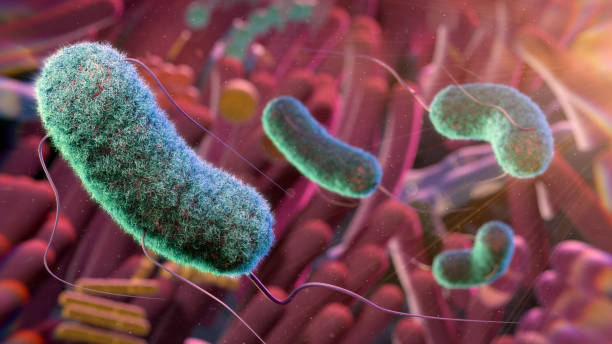Intestine Microbiome and Mental Wellbeing: What’s the Link?
As awareness of mental health continues to grow, understanding the relationship between the gut microbiome and mental wellbeing has become increasingly vital. But what exactly is the gut microbiome, and how does it influence mental health? In this article, we will explore the gut microbiome and examine the research that reveals its impact on mental wellbeing.
What is the Gut Microbiome?
Imagine a bustling city of trillions of residents living within your body. This city, known as the gut microbiome, is a complex ecosystem of microorganisms residing in our digestive tract. These tiny inhabitants are not mere bystanders; they play a crucial role in our overall health and mental wellbeing.
The Composition of the Gut Microbiome
The gut microbiome consists of bacteria, viruses, fungi, and other microorganisms. Each individual’s microbiome is unique, shaped by factors such as diet, environment, and genetics. A balanced and diverse gut microbiome is essential for maintaining optimal health, including mental health.
The Gut-Brain Axis
So, how can your stomach affect your brain and mental health? The answer lies in the gut-brain axis, a complex communication network linking the gut and the brain. This “superhighway” of information allows these two vital organs to communicate, influencing everything from digestion to mood.
Neurotransmitter Production
One of the most fascinating aspects of the gut-brain axis is its role in neurotransmitter production. Neurotransmitters such as serotonin and dopamine are crucial for regulating our emotions, mood, and even behavior. The gut-brain axis ensures that these neurotransmitters reach the brain, helping us maintain emotional balance.
The Role of Gut Microbes in Mental Health
Research has uncovered several ways in which a healthy gut microbiome can positively impact mood and mental wellbeing:
1. Serotonin Production
Did you know that approximately 95% of serotonin, the “feel-good” hormone, is produced in the gut? These chemicals, synthesized by gut microbes, are essential for maintaining mood and emotional health. A thriving gut microbiome ensures a steady flow of serotonin to the brain, contributing to overall mental wellbeing.
2. Stress Response Regulation
Stress is an inevitable part of life, but gut microbes can help us navigate these challenges more effectively. They play a crucial role in regulating our stress response, helping to keep anxiety levels in check and promoting emotional resilience. By influencing the production of stress-related hormones, a balanced gut microbiome can enhance our ability to cope with stress.
3. Inflammation and Immune System Modulation
Gut microbes also play a significant role in regulating inflammation and modulating the immune system. A healthy gut microbiome helps maintain an optimal balance of pro-inflammatory and anti-inflammatory factors. Chronic inflammation has been linked to numerous mental health issues, including depression and anxiety. By keeping inflammation in check, gut microbes can indirectly support mental wellbeing.
4. Production of Other Neurotransmitters
In addition to serotonin, gut microbes are involved in the production of other neurotransmitters, such as dopamine, norepinephrine, and gamma-aminobutyric acid (GABA). These neurotransmitters also contribute to mood regulation, emotional balance, and cognitive function. Ensuring a balanced gut microbiome is key to maintaining adequate levels of these important chemicals.
5. Short-Chain Fatty Acid (SCFA) Production
Gut microbes ferment dietary fibers to produce short-chain fatty acids (SCFAs) such as butyrate, propionate, and acetate. SCFAs have a variety of health benefits, including supporting the blood-brain barrier, modulating inflammation, and promoting the growth of new brain cells. By maintaining cognitive function and protecting against neurodegenerative diseases, SCFAs play a vital role in mental wellbeing.
6. Synthesis of Vitamins
Certain gut microbes can synthesize essential vitamins, including vitamin K and several B vitamins (B12, B7, and B9). These vitamins are crucial for various aspects of mental health, including cognitive function, mood regulation, and brain development. A well-nourished gut microbiome can help ensure adequate vitamin production for optimal mental wellbeing.
How to Promote a Healthy Gut Microbiome
Embarking on a journey toward a healthier gut microbiome can be both exciting and rewarding. By making simple yet effective changes to our diet and lifestyle, we can nourish our gut microbes and support our mental health. Here are some tips to get you started on this path to wellbeing:
1. Incorporate Prebiotics and Probiotics
Prebiotics are non-digestible fibers that fuel our gut microbes, while probiotics are live microorganisms that help maintain a thriving gut microbiome. Incorporate foods rich in prebiotics, such as whole grains, bananas, and garlic, along with probiotic sources like yogurt, kefir, and sauerkraut, to create a healthy and balanced gut ecosystem.
2. Consume Omega-3 Fatty Acids
Omega-3 fatty acids, found in foods such as fatty fish, chia seeds, and walnuts, are known for their anti-inflammatory properties and their ability to support brain health. Eating omega-3-rich foods can help maintain the gut-brain axis and promote overall mental wellbeing.
3. Engage in Regular Exercise
Physical activity not only benefits our bodies but also our gut microbiome. Regular exercise has been shown to increase the diversity of gut microbes, which in turn supports mental health. Whether it’s weight training, walking, or cycling, find a form of exercise you enjoy and make it a regular part of your routine.
4. Practice Stress Reduction Techniques
Chronic stress can negatively impact our gut microbiome, so incorporating stress reduction techniques into our daily lives is essential. Mindfulness practices such as meditation, yoga, and deep breathing exercises can help alleviate stress and promote a healthier gut environment.
5. Prioritize Sleep
Quality sleep is crucial for both gut health and mental wellbeing. Aim for 7-9 hours of restful sleep each night to allow your body and mind to recover. Establish a consistent sleep schedule and create a calming bedtime routine to improve sleep quality.
6. Stay Hydrated
Drinking enough water is vital for maintaining gut health. Proper hydration supports digestion and helps the gut microbiome thrive. Aim to drink at least eight 8-ounce glasses of water daily, or adjust your intake based on your activity level and climate.
7. Limit Processed Foods and Sugars
A diet high in processed foods and sugars can disrupt the balance of gut microbes. Focus on consuming whole, unprocessed foods rich in nutrients to support a healthy gut microbiome. This includes fruits, vegetables, lean proteins, and healthy fats.
The Future of Gut Microbiome Research
As research on the gut microbiome continues to expand, its implications for mental health are becoming increasingly clear. The intricate relationship between gut health and mental wellbeing opens up new avenues for treatment and prevention of mental health disorders. Personalized nutrition and targeted probiotic therapies may hold promise for enhancing mental health outcomes in the future.
Conclusion
The gut microbiome plays a significant role in mental wellbeing, influencing everything from mood regulation to stress response. By nurturing a healthy gut microbiome through diet, exercise, and lifestyle choices, we can enhance our mental health and overall quality of life. As we continue to learn more about the connections between the gut and the brain, it’s clear that taking care of our gut health is an essential step toward supporting our mental wellbeing. Embrace these practices and embark on a journey to a healthier, happier you!






